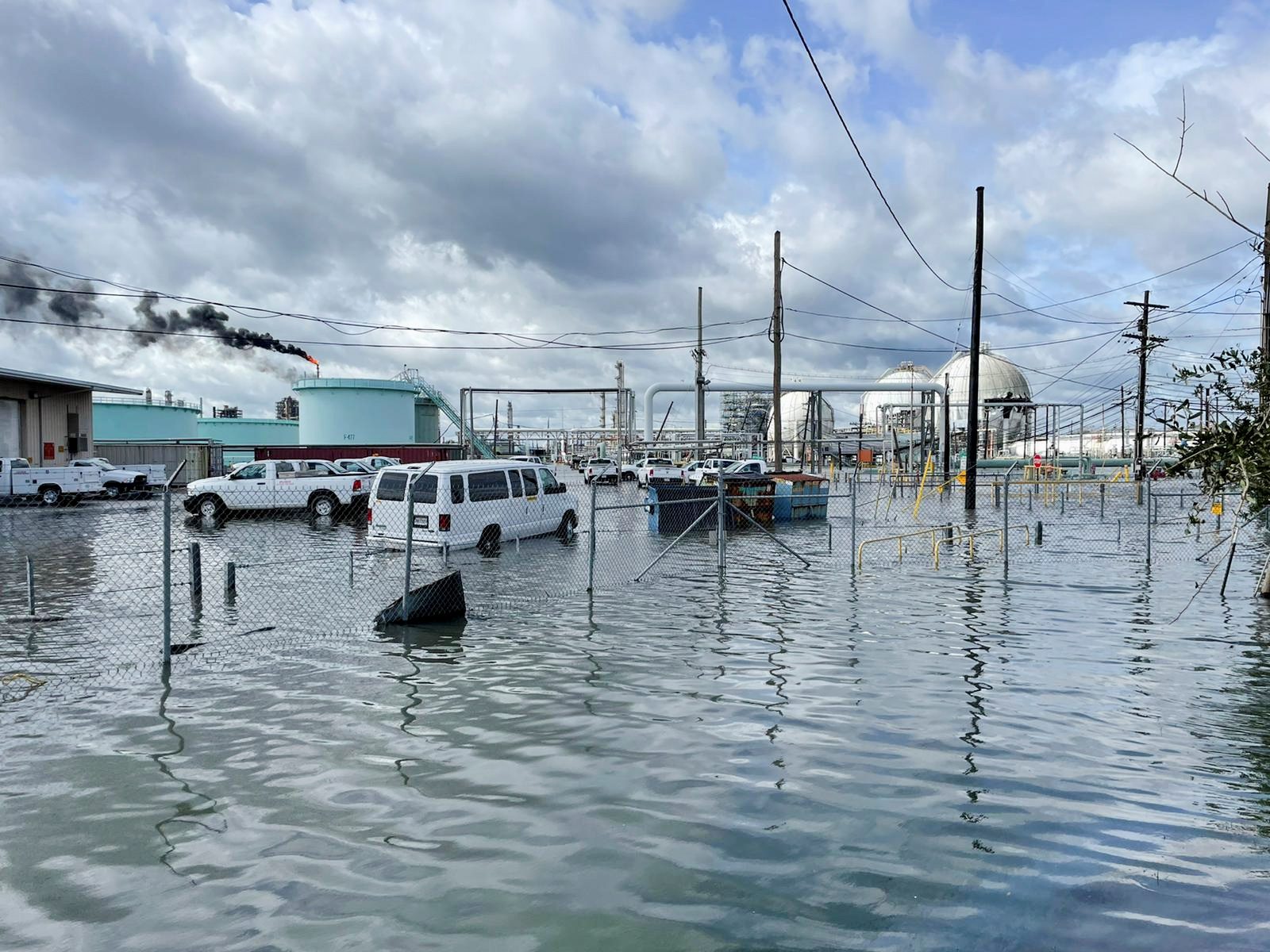By Marianna Parraga and Stephanie Kelly(Reuters) – Widespread flooding from Hurricane Ida and power outages on Tuesday slowed efforts by energy companies to assess damages at oil production facilities, ports and refineries.
Nearly all of Louisiana lost electrical power on Monday after one of the most powerful hurricanes to hit the region downed transmission lines and flooded communities, leaving more than 1 million customers without power. Coastal areas were swamped by a storm surge so great it reversed the flow of the Mississippi River.
Analysts said it could take two to three weeks to restart producing platforms and fully resume output at Louisiana refineries. Restoring power, critical to refineries, also could take weeks, utilities officials said.
“This restoration is not going to be a likely quick turnaround,” said Rod West, head of utility operations at Entergy Corp. “This was a significant catastrophic wind event, whereas Katrina was a water event by comparison.”
Disruptions at oil infrastructure are testing the country’s fuel distribution systems. Operators shut offshore oil and gas pipelines that feed processing plants.
On Tuesday, the Colonial Pipeline – the largest fuel line to the East Coast – restarted its main gasoline and distillate lines after it shut the lines as a safety precaution ahead of the storm.
Phillips 66 has not been able to begin damage assessments at its 255,600-barrel-per-day refinery on the Mississippi River in Belle Chasse, Louisiana, a spokesman said. The plant, which was put up for sale last week, was swamped from a failed levee in Alliance.
“That is the most water I have ever seen in my 31 years come through to Alliance,” Plaquemines Parish Sheriff Gerald Turlich said on Monday.
Floods have also been reported at other facilities in Louisiana. Nine refineries have reduced production or shut operations, including Exxon’s 520,000-bpd Baton Rouge, taking offline 2.3 million bpd of capacity or 13% of the country’s total, the U.S. Department of Energy estimated.
Offshore, 95% of the Gulf’s oil production and 94% of its gas output remained shut on Monday, the Bureau of Safety and Environmental Enforcement said. A total of 288 production platforms and 11 rigs remained evacuated.
Numerous ports from New Orleans to Pascagoula, Mississippi, were closed on Tuesday, including Louisiana Offshore Oil Port (LOOP), the largest U.S. privately owned crude export and import terminal. The terminal on Tuesday said it was working with oil shippers to minimize the effects of the storm’s disruption.
“With widespread refinery outages and debris on waterways, we expect no imports into the impacted ports in the coming days,” analysis firm ClipperData said in a note to clients.
Uncertainty on infrastructure restart timelines had pushed up oil prices on Monday. Prices were down on Tuesday, as the shuttering of refineries will temporarily sap demand for crude. U.S. gasoline futures were also lower.
Trying to avoid over-costs of getting imported gasoline or domestic fuel shipped in tankers, some consumers are relying on the country’s pipelines to fully restart soon, especially since many ports have not reopened, traders said.
Late Monday, the U.S. Environmental Protection Agency waived an environmental rule to allow winter-grade gasoline to be sold in Louisiana and Mississippi to ensure adequate fuel supply.
Regional gasoline prices are expected to rise temporarily, the American Automotive Association said, though flooding could sap demand.
Pipeline operator Enbridge temporarily suspended some contacts under force majeure, while Energy Transfer informed shippers that its Stingray Pipeline, which brings gas from the U.S. Gulf to Louisiana, would not accept deliveries.
(Reporting by Erwin Seba, Stephanie Kelly and Liz Hampton; Writing by Marianna Parraga in Houston; Editing by Stephen Coates and Bill Berkrot)
(c) Copyright Thomson Reuters
Unlock Exclusive Insights Today!
Join the gCaptain Club for curated content, insider opinions, and vibrant community discussions.

 Join The Club
Join The Club













